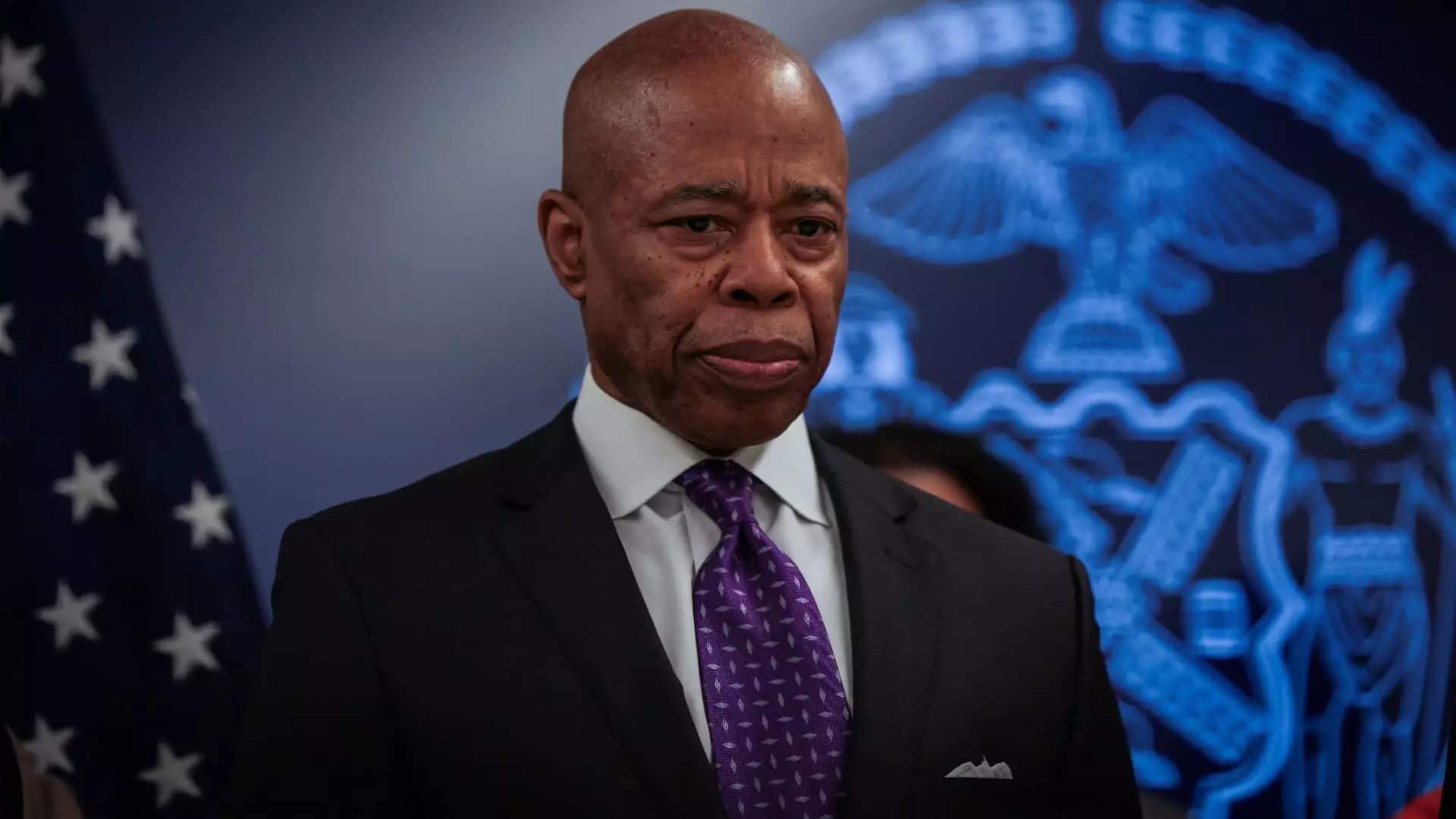In the heart of Manhattan, the political landscape has been rocked by the ongoing legal troubles surrounding New York City Mayor Eric Adams. A federal judge’s recent refusal to dismiss corruption charges against the mayor has set the stage for an unpredictable and potentially explosive political crisis. This article delves into the complexities surrounding the case, the implications for Adams’ political future, and the broader ramifications for New York City.
On a pivotal day in court, U.S. District Judge Dale Ho chose not to dismiss the corruption case against Mayor Eric Adams outright. Instead, he decided to postpone the trial indefinitely while appointing an outside attorney to assess the Justice Department’s request for dismissal. This curious legal maneuver demonstrates the intricacies of the American judicial system and how it can intersect with political affairs. The unorthodox role of the appointed attorney, Paul Clement, reflects an effort to maintain impartiality in a case steeped in partisan controversy.
The Justice Department’s involvement has only added to the layers of complexity. Notably, their appeal to dismiss charges stems from a rocky internal dynamic, where several prosecutors resigned rather than comply with orders perceived as politically motivated. This strife within the Justice Department accentuates the suspicion and mistrust towards federal authority, particularly in a political climate that remains deeply divided.
Mayor Eric Adams faces serious allegations involving bribes and campaign contributions from Turkish nationals. These charges, brought to light during a turbulent year, have cast a long shadow over Adams as he campaigns for re-election. While Adams has pleaded not guilty, the specter of corruption looms large, risking the confidence of voters as he attempts to repair his image. Adams’ claims of political retribution from the Biden administration due to his criticism of its immigration policies adds another layer of intrigue to an already complicated narrative.
The controversy reaches beyond individual legal troubles, seeping into the broader political fabric of New York. High-profile Democrats have voiced concerns that dismissing the charges could render Adams excessively loyal to former President Trump’s agenda. The very suggestion that a quid pro quo arrangement was proposed between Adams and the Trump administration raises ethical questions about the intersections of politics and power in American governance.
As the legal saga unfolds, the political fallout is palpable. The controversy has ignited calls from numerous Democratic figures for Adams to resign, further fragmenting the party as it grapples with a leader facing allegations that undermine his standing and credibility. The fact that four of his deputies plan to resign in the weeks ahead exemplifies the fracture within Adams’ administration, illustrating how an individual’s legal troubles can catalyze broader instability within a political organization.
While Governor Kathy Hochul has refrained from taking any direct action against Adams, her acknowledgment of the need for increased oversight of the mayor’s office signals the gravity of the situation. This potential shift in governance suggests that the implications of Adams’ charges extend well beyond his personal political future; they may redefine the operational dynamics of New York City’s local government.
As Eric Adams continues to navigate the murky waters of legal challenges and political scrutiny, the stakes could not be higher for both him and New York City. The complexities of his case present unique challenges as the mayor endeavors to maintain public trust while juggling issues of public safety, immigration policy, and his administration’s credibility.
For New Yorkers, the unfolding drama surrounding their mayor will likely influence voter sentiment as the next election approaches. The dual threats of legal jeopardy and political disarray may redefine the future of leadership in New York City. Whether Adams can successfully disentangle himself from the allegations while securing a path forward for his administration remains to be seen. However, the events in the coming weeks will surely shape his legacy, the Democratic Party in New York, and the very fabric of the city itself in a time of immense political polarization.



Leave a Reply